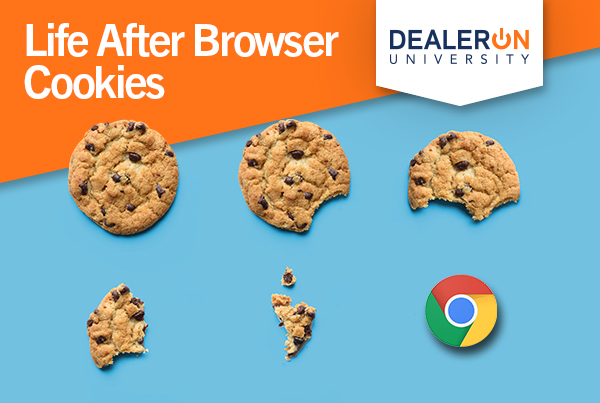

Google announced a huge change to Chrome! What does this mean for advertisers? With Google’s announcement that Chrome will no longer support third-party cookies, the landscape of advertising has changed yet again.
In January of this year, Google announced a plan to phase out support for third-party cookies on Chrome over the course of two years. This makes it the last of the big three browsers (and the biggest of the three) to do so, with Firefox and Safari already taking this plunge and actively blocking all third-party cookies.
Google’s decision points to a larger trend by the browser to prioritize the privacy of users. That this comes at the same time as a cookie-targeted privacy law in California and a looming anti-trust investigation is a coincidence, I’m sure.
The question is, of course, what does this mean for car dealerships? In the short term, not much. Google has stated that the phasing out process is over the course of two years. In the long term, what it means is that browsers will no longer be able to track a user’s behavior over time. In addition to phasing out support, Google has announced that no other use-tracking system will be replacing it.
Targeted ads based on browsing history are going to become impossible. Google has promised that the new method will deliver results just like the old one. Instead of tracking the habits of individuals, Google is using something called Federated Learning of Cohorts. Essentially, this groups people by similar habits and tracks them as a group. I am, to be perfectly frank, unsure as to how this addresses privacy much better than the old way, but Google sure seems convinced.
FLoCs are currently being tested, and we will know more as they become a fact of life in the new advertising landscape.


